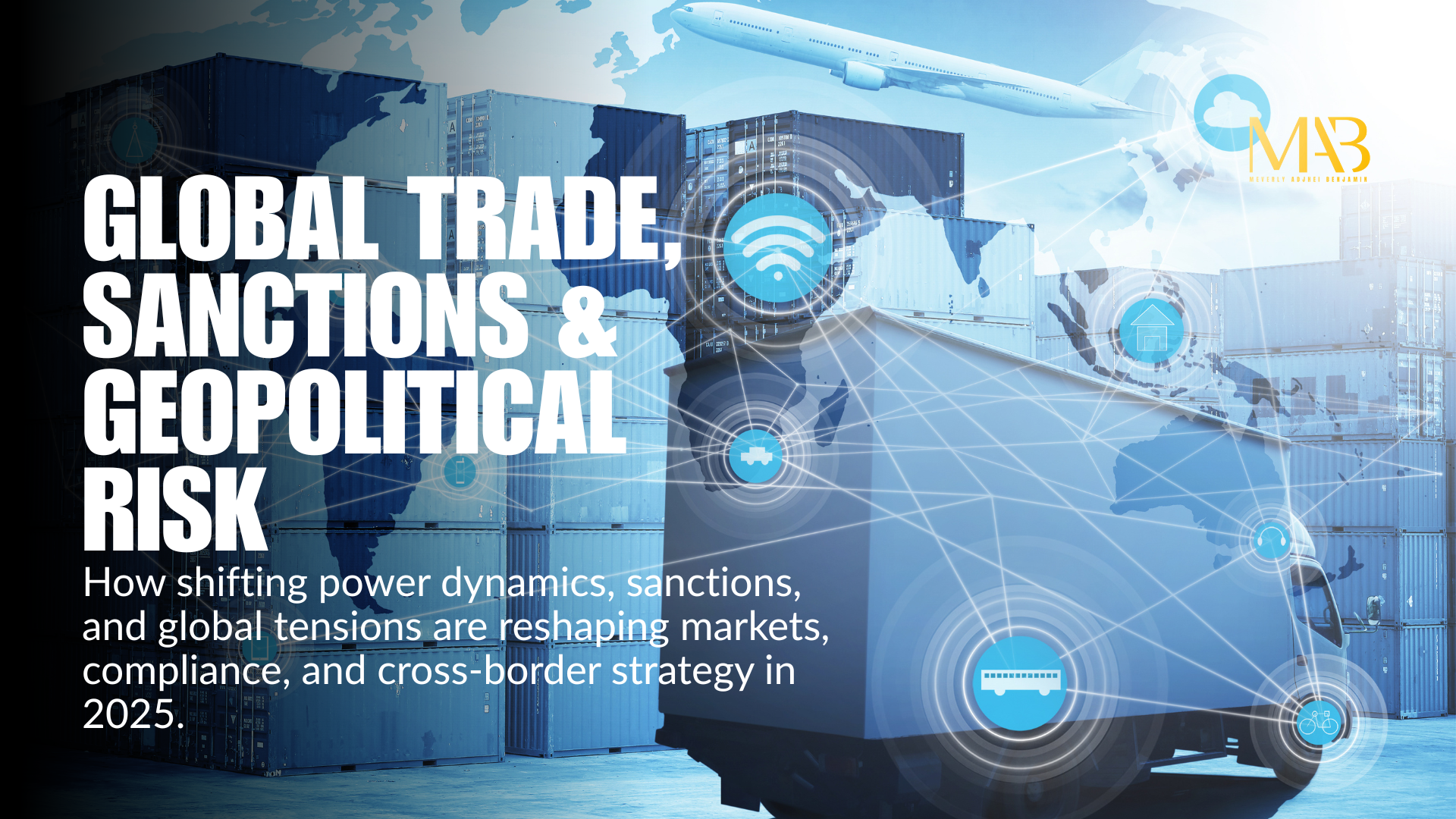Global trade connects economies, businesses, and consumers like never before. At the same time, sanctions and geopolitical tensions are increasingly shaping trade flows, creating operational and compliance challenges.
From my experience as a Regulatory Affairs Advisor in Europe, businesses that integrate regulatory foresight into their strategy are better positioned to manage disruptions without compromising compliance or market credibility.
Understanding Sanctions & Geopolitical Risk
Sanctions are formal restrictions imposed by governments or international bodies to influence behavior, typically by limiting trade, financial transactions, or market access.
Geopolitical risk refers to potential instability, political, economic, or social, that can impact global trade routes, supply chains, or regulatory frameworks.
Neutral insight: Sanctions are intended as policy tools, but they can have ripple effects across industries. Awareness and early planning are critical for businesses operating internationally.
Impact on Trade & Business
Sanctions and geopolitical tensions affect organizations in multiple ways:
- Supply Chain Vulnerabilities: Delays, border closures, and increased costs.
- Regulatory Compliance: Navigating local, EU, and international rules to avoid penalties.
- Market Volatility: Political uncertainty can shift investments, pricing, and strategic decisions.
Observation from practice: Businesses that proactively assess these risks often anticipate challenges faster and respond more effectively than competitors.
Regulatory Perspective
Regulatory frameworks provide clarity amid uncertainty:
- Harmonized EU and global sanctions lists with licensing and reporting procedures.
Encouragement of risk assessments and due diligence to support business continuity. - Alignment with regulations is not about limitation—it’s about enabling responsible, resilient operations.
Personal insight: Integrating regulatory considerations into strategy allows businesses to mitigate risk while maintaining flexibility.
Practical Guidance for Businesses
- Conduct Regular Risk Assessments – Map suppliers, markets, and trade routes to identify potential vulnerabilities.
- Stay Informed – Monitor EU trade policies, global sanctions, and local compliance requirements.
- Diversify Operations – Reduce reliance on single markets or suppliers to minimize disruptions.
- Implement Compliance Controls – Monitoring, reporting, and mitigation frameworks ensure swift adaptation.
Key takeaway: Combining foresight with regulatory alignment strengthens operational resilience and supports long-term growth.
Global trade is inherently dynamic. Sanctions and geopolitical risks will continue shaping business operations worldwide. From my perspective, organizations that embed risk management, compliance, and strategic foresight into their processes are better equipped to navigate uncertainty and sustain growth.
How does your organization approach geopolitical risk? I invite you to share your perspectives, let’s discuss strategies in the comments.


No responses yet